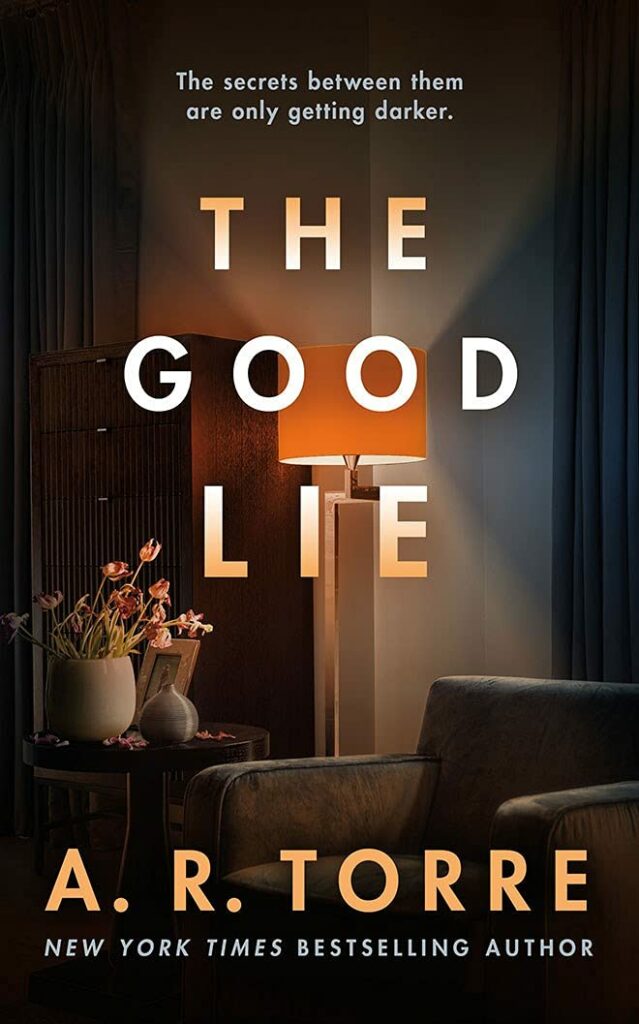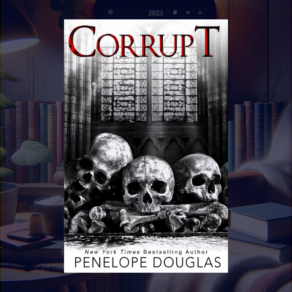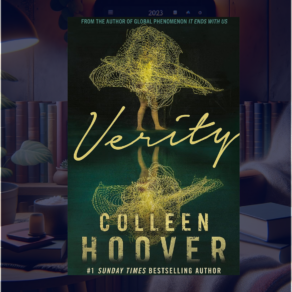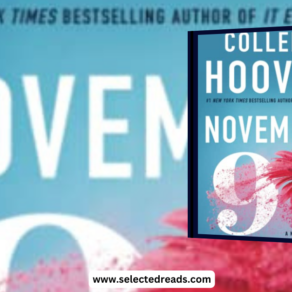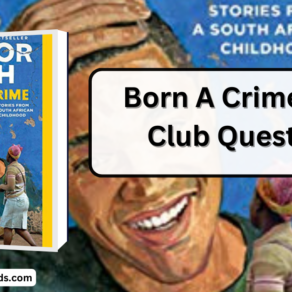“The Good Lie” by A.R. Torre, a compelling psychological thriller that delves deep into the realms of crime, truth, and the complexities of the human psyche. This gripping novel has garnered attention for its intricate plot, rich character development, and its exploration of profound themes.
We begin our journey with an extended summary of the book. This overview sets the stage by introducing the primary storyline without giving away crucial plot details. It provides a backdrop against which the novel’s events unfold, involving a serial killer, a psychiatrist’s involvement, and a gripping legal and psychological investigation.
Next, we delve into the characters of “The Good Lie”. Key figures like Dr. Gwen Moore, Randall Thompson, and Robert Kavin are examined in detail, shedding light on their motivations and the roles they play in the complex unfolding of the story.
We have also covered specific quotes from the book, excerpts that offer insights into the author’s style and the thematic essence of the novel, providing a deeper understanding of the characters’ thoughts and the narrative’s tone.
Finally, we present a set of thought-provoking book club questions designed to ignite discussion and reflection. These questions cover various aspects of the novel, from its psychological elements and moral ambiguities to its character development and narrative structure.
Through this comprehensive exploration – encompassing the summary, characters, quotes, and discussion questions – our aim is to provide a thorough understanding of “The Good Lie”. This guide is crafted to enhance your reading experience, whether you’re delving into A.R. Torre’s work for personal enjoyment or as part of a collective reading endeavor.
The Good Lie Summary
“The Good Lie” by A. R. Torre is a riveting psychological thriller that weaves a complex web of murder, mystery, and hidden truths. The novel centers around the hunt for the Bloody Heart (BH) Killer, a serial killer responsible for the deaths of six teenagers in California. The narrative is gripping, with intricate layers of psychological insights, suspense, and unexpected twists.
At the heart of the story is Dr. Gwen Moore, a psychiatrist specializing in treating some of California’s most dangerous criminals. Her expertise is sought after in the case of the BH Killer, particularly when a teenage victim escapes and points to Randall Thompson, a local high school teacher, as the captor. The evidence against Thompson is overwhelming, and for the public and media, including Gwen, the case seems conclusively closed.
However, the plot takes a turn with the introduction of Robert Kavin, a defense attorney who is also a grieving father, having lost his son to the BH Killer. Robert is convinced of Thompson’s innocence and takes on his case. He approaches Gwen, requesting her to conduct a psychiatric evaluation of Thompson, to create a profile of the killer and the victims, and to assist in proving Thompson’s innocence.
As Gwen delves deeper into the case, her involvement becomes more personal and intense. She finds herself growing closer to Robert, whose trauma and determination resonate with her. However, Gwen’s investigations lead to more questions than answers. She starts to uncover layers of deception and secrets, not just about the case but also about the people involved, including Robert.
The novel expertly navigates through themes of justice, truth, and the psychology of crime. A. R. Torre crafts a narrative that keeps the reader questioning the reliability of characters and their motives. As Gwen’s suspicions about Robert and others involved in the case grow, the reader is pulled into a vortex of doubt and intrigue.
“The Good Lie” stands out for its psychological depth and the way it portrays the impact of crime on both the victims and those seeking justice. The character of Gwen Moore, with her professional insights into the criminal mind, adds a unique dimension to the story, making it not just a hunt for a killer but also an exploration into the human psyche.
In conclusion, A. R. Torre’s “The Good Lie” is a compelling and thought-provoking psychological thriller that offers suspense, psychological depth, and a narrative filled with unexpected twists. It’s a story that challenges perceptions, tests the boundaries between truth and lies, and keeps readers on the edge of their seats until the very end.
Related: The Last Mrs Parrish Summary, Characters, and Book Club Questions
The Good Lie Characters
“The Good Lie” by A. R. Torre features a compelling cast of characters, each playing a vital role in the intricate narrative centered around the pursuit of the Bloody Heart (BH) Killer. Here’s a closer look at the key characters in the novel:
- Dr. Gwen Moore: A central character, Gwen is a psychiatrist with a specialty in analyzing and treating dangerous criminals. Her expertise in understanding the criminal mind makes her a crucial figure in the investigation of the BH Killer. She is portrayed as intelligent, dedicated, and deeply empathetic towards the victims, yet her involvement in the case leads her into a complex web of personal and professional challenges.
- Randall Thompson: He is the high school teacher accused of being the BH Killer, following the identification by an escaped teenage victim. His character is at the center of the controversy and mystery, with the evidence against him being a pivotal point of the narrative. Randall’s portrayal raises questions about innocence, guilt, and the nature of truth.
- Robert Kavin: A defense attorney and a father who lost his son to the BH Killer, Robert is a character driven by a dual motive – professional duty and personal grief. Convinced of Thompson’s innocence, he hires Gwen to help prove it. Robert’s character adds emotional depth to the story, highlighting the impact of crime on families and the lengths one might go to seek justice.
- The BH Killer: Though not directly presented as a character, the presence of the Bloody Heart Killer looms large over the entire narrative. The BH Killer’s actions and the mystery surrounding their identity are central to the plot, driving the actions and decisions of the other characters.
- Other Characters: The novel also includes various secondary characters such as other victims of the BH Killer, law enforcement officials, and individuals associated with the main characters. These characters contribute to the development of the story, providing insights into the main characters’ lives and adding layers to the central mystery.
The Good Lie Quotes
Here are some interesting quotes that communicate the main themes of the novel:
- “William S. Burroughs once said that no one owns life, but anyone who can lift a frying pan can create death. He was right. Killing is the easy part. The act of living—of finding happiness in life—that’s the hard part.” ― A.R. Torre, The Good Lie
- “Losing a child was like losing a limb. You were reminded of it every time you moved, until the consistent adjustments to life became a permanent part of you.” ― A.R. Torre, The Good Lie
- “Obsession, as I frequently told my clients, never affected outside situations. They only made your internal struggles—and resulting personal actions and decisions—worse.” ― A.R. Torre, The Good Lie
- “William S. Burroughs once said that no one owns life, but anyone who can lift a frying pan can create death. He was right. Killing is the easy part. The act of living—of finding happiness in life—that’s the hard part. Moving past grief and guilt, and learning to love and to trust . . . I wanted to take that path, but I rather liked cradling my sorrows.” ― A.R. Torre, The Good Lie
- “We were a wrecked car, barreling down the highway without lights, our steering locked into place. I could put a seat belt on. I could reach out and jab the hazard lights on. But I couldn’t turn off the car, and I couldn’t seem to open the door and fling myself out.” ― A.R. Torre, The Good Lie
- “He was naming the reasons he didn’t have a pet, which were all valid, if you were considering pets as sterile objects and completely discounted the joy they brought to your life.” ― A.R. Torre, The Good Lie
- “Because he was good in bed? Trust me, the better the motion, the more screwed up the ocean.” ― A.R. Torre, The Good Lie
- “If a person is in the way or causing an annoyance in their lives, they handle them the same way they’d handle a mosquito—kill it, flick it to the side, and move on. They don’t grieve, regret, savor, or think about the killing again unless that action causes consequences or requires cleanup.” ― A.R. Torre, The Good Lie
The Good Lie Book Club Questions
Here are some questions that delve into the themes, characters, and narrative style of the book:
- Character Depth of Dr. Gwen Moore: Gwen is a complex character with a unique perspective on the criminal mind. How do you think her profession as a psychiatrist influences her actions and decisions throughout the novel?
- Themes of Justice and Truth: The novel revolves heavily around the concepts of justice and truth. How are these themes explored through the characters and the plot? Do you think the novel presents a clear line between truth and lies?
- The Role of Randall Thompson: Randall Thompson is a pivotal character whose guilt or innocence drives much of the plot. How did your perception of Randall change throughout the novel, and why?
- Psychological Elements in the Narrative: How does A. R. Torre use psychological elements to enhance the suspense and mystery in the story? Were there any moments that particularly stood out to you in this regard?
- Impact of Personal Trauma: Robert Kavin’s personal loss plays a significant role in his character development and actions. Discuss how personal trauma is portrayed in the novel and its impact on the pursuit of justice.
- Moral Ambiguities: The novel presents several characters with morally ambiguous traits. How do these ambiguities affect your perception of the characters and their motivations?
- The Novel’s Structure and Pacing: What are your thoughts on the book’s pacing and how the story is structured? Did the narrative style keep you engaged and add to the suspense?
- The Ending and Resolution: Without giving away spoilers, what are your thoughts on the novel’s conclusion? Did it meet your expectations or leave you with unanswered questions?
- Comparison with Other Psychological Thrillers: If you’ve read other psychological thrillers, how does “The Good Lie” compare in terms of character development, plot complexity, and overall engagement?
- Key Takeaways and Reflections: What do you think are the key takeaways from this novel? Were there any lessons or reflections on human nature and society that stood out to you?
Final thoughts
In conclusion, “The Good Lie” by A.R. Torre presents a fascinating journey into a world where truth and deception intertwine, and where the pursuit of justice takes on complex psychological dimensions. Our exploration of this novel, through the summary, character analysis, quotes, and discussion questions, aims to provide a comprehensive understanding of its depth and intricacies.
Whether you’re reading this as an individual or discussing it in a book club, “The Good Lie” is sure to provide a captivating and thought-provoking experience. This novel is a testament to A.R. Torre’s ability to craft a story that is as intellectually stimulating as it is emotionally engaging.



